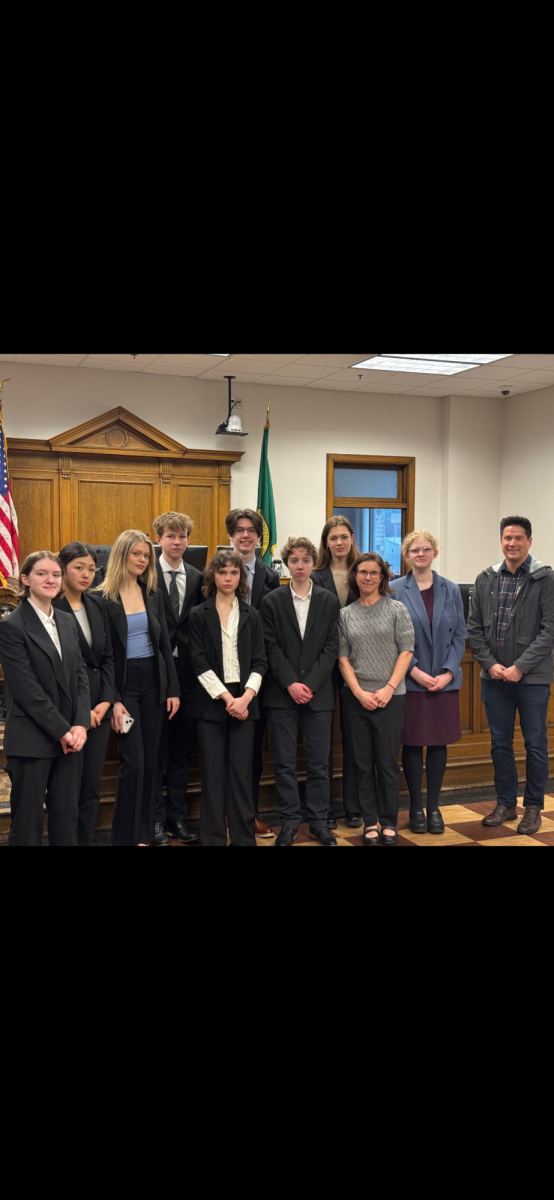The total revenue from gambling in the United States in 2023 was $66.5 billion, a number that has only seen growth in continuing years, according to the American Gaming Association.
To put that into perspective, Oxfam predicts $34 billion are necessary to ending chronic world hunger. Gambling’s prevalence is nowhere in question. However, its presence in the Ballard High School community might be more common than expected.
“I feel like gambling is a big house, and there’s different sections to it,” Junior Cove said.
He continues to explain that classic card games like Texas Holdem is a section he enjoys at a table surrounded by close friends. However, there has been a shift in favor of online sport betting in recent years, as BHS students shared.
“Gambling itself isn’t common but betting is [at the school],” senior Liam Fulks said.
The distinction seems to be an important one; casino style poker nights have been falling more and more out of favor. “We work in the student store, [and bet] who’s gonna come in and what they’re gonna ask for,” Fulks said.
Fulks highlights the caution he believes people should hold for high stakes bets like UFC fights he casually makes with close friends.
“I don’t gamble with any money anyway,” Fulks said.
Gambling doesn’t have to be all about the money, though some people find it to be a fantastic motivator.
“My goal is money,” Cove said.
As Cove shared, his in-house poker nights typically have a buy-in of about $20. He describes himself as a player however, not the house. Money isn’t the only motivating factor, good old competition is a common incentive as well.
“I like to gamble because I like the thrill of winning,” Fulks said.
Fulks’ low stakes gambling with loot boxes rather than cash does nothing to discredit his thrill.
“Winning your first big pot is like something that just sends a chill down your spine,” Fulks said. “You came out with more than you came in with which is a really cool feeling.”
Junior Luella McNichols gambles neither for the money made nor the thrill exercised, but instead a third factor.
“Me and my family have these gambling nights where we use poker chips but no real money,” McNichols said. “It’s fun and I like dressing up fancy and we have classic casino appetizers and decorations.”
The “aesthetics” of gambling, as McNichols described, are deeply rooted in Hollywood movies including “Casino Royale” and “Ocean’s Eleven,” where slot machines, pool tables and roulette wheels are romanticized. However, these movies primarily highlight the benefits of gambling and going to the casino instead of offering a more balanced look at the hobby.
Fulks, on the other hand, has been able to discern the more negative aspects of such aesthetics.
“…[Casinos are] very profitable, the term ‘house always wins’ is a real thing,” Fulks said.
According to the University of Nevada, 23 million Americans go into debt over gambling with an average loss of around $55,000 per person.
Despite the large amount of loss associated with gambling, most schools do not teach about the dangers of gambling. The Seattle Public Schools’ WiFi and laptops actively block research on gambling, so students’ that gamble may not even be aware that it is
indeed an illegal activity.
An anonymous student currently aware of the risks of gambling had never been warned about the various risks before becoming a part of the gambling community.
“No, I don’t think they [schools] talk about gambling risks at all,” the anonymous student said. “I don’t think schools need to discuss it, but maybe parents depending on their different values.”
The most students have heard about gambling in schools is not through teachers nor admin but instead by other students.
“The only time I’ve ever heard gambling in school is when students choose it for their own research topic,” McNichols said.
Such an interest in gambling has become more rampant with the current economic instability, mainly President Donald Trump’s announced tariffs on products that could cost United States’ households upwards of $4,000 more per year according to ABC News.
In an article written for the National Library of Medicine, economic uncertainties and recessions often lead to people being more emotional, bored and unemployed: all of these factors greatly contribute to an influx in gambling.
With many students becoming legal adults, applying for jobs and stressing about their fiscal future, a clear connection can be drawn between students and gambling.






















